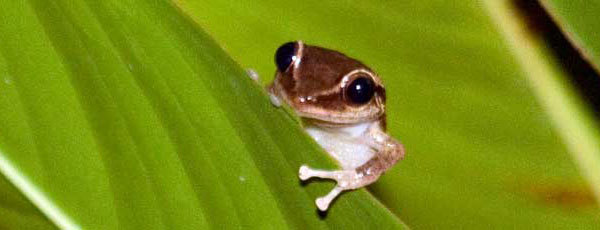Puerto Rico's Rainforest
- San Juan Airport, Puerto Rico
- Volunteer Vacations

| from $1,995* per person | 10 Days | March, June, November, December |
| Basic accommodations | Exertion level: 6 | |
| Operator: Earthwatch Institute | 12 people max | |
Loading map, please wait...
Locations visited/nearby
Las Casas de la Selva , Patillas , Puerto Rico , hiking , biodiversity , scientific research , wildlife surveys , endangered species , Puerto Rico
0 testimonials about this trip.
1 testimonial about the provider, Earthwatch Institute:
-
Reviewer: L. Reifschneider
located in
St. Louis,
MO
USA
Elephant conservation is what drives my travel destinations. However, I always come home counting the blessings of new friends and an understanding of a culture and way of life I possibly would otherwise have never been introduced to. Through the Earthwatch projects I participate in, I am learning just how big and wonderful this world is.
Itinerary
On the ExpeditionTest ways to sustainably manage tropical rainforests, and provide local income while protecting biodiversity.
Earthwatch volunteers will be trained in a variety of tasks, which may include measuring trees, counting lizards or frogs, helping to tag and identify vine species, and helping to set up new experimental plots for planting different tree and shrub species. All the while you'll be hiking through beautiful, tropical rainforest areas, sometimes climbing up steep hillsides, and sometimes following fast flowing rivers. You will also have the chance to join a night expedition into the forest to help count coqui frogs. During your recreational time you will be able to enjoy hikes (if you still have the energy), take dips in nearby rivers, take part in some forest related craft activities, use the project library to learn more about the ecology of the area, or just relax and enjoy an area of rainforest land that very few other people have had a chance to visit. There will also be an opportunity to take a salsa dancing class and to experience the local culture and cuisine.
Meals and Accommodations
You'll stay in tents on large, covered platforms with comfortable foam mattresses near the main house of the research area, or in a newly constructed bunk house. A bathing block has hot and cold showers and flush toilets. There is electricity, but power outages are common, so expect some candlelight meals. The project staff includes accomplished cooks, and you will enjoy an array of world cuisine meals. Volunteers take turns acting as sous chefs and doing some after dinner clean-up.
About the Research Area
The island of Puerto Rico, with an area of approximately 3,435 square miles, it is the smallest of the four islands that compose the Greater Antilles as well as the most easterly. The Las Casas de la Selva forest, where the project will take place, is located about one hour by car from the San Juan International Airport and within easy reach of major commercial centers and beaches. The forest’s elevation of 600 meters (1,800 feet) provides year round temperatures averaging 71.7ºF (22ºC). The plantation area ranges from very narrow ridge tops, down generally convex upper slopes and concave mid and lower slopes, to fast running perennial streams.
The research area consists of several buildings, and open-walled dining area, and roofed tent platforms. At night, you will be serenaded by the tiny coqui frog - and one night you may do a frog survey.
Evenings often feature entertainment - music, learning to salsa dance, or visiting one of the small towns nearby. On your day off, the group can go to the beach, Old San Juan, or several other attractions.
More information from Earthwatch Institute:
- View trip on provider's website
earthwatch.org/expeditions/nelson.html… - Company profile, experience, and history
- View all of their trips
- Email this trip page to a friend
-



Comments from Facebook